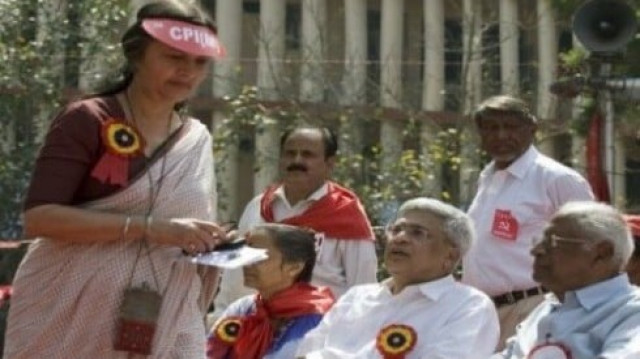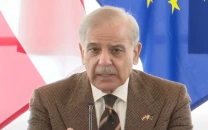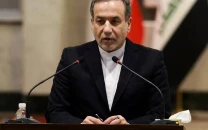India’s powerful communists fight for survival

India’s powerful communists fight for survival
The Communist Party of Indian-Marxist (CPI-M) which has won every election in the eastern Indian state since 1977, is suddenly fighting for survival after suffering a crushing defeat in municipal elections last week.
The party’s nemesis is India’s mercurial Railways Minister Mamata Banerjee, who heads the Trinamul Congress, a relatively new regional party intent on ending the CPI-M’s long-running monopoly on power in West Bengal.
Banerjee’s party swept the polls in the state capital Kolkata, winning 95 of 141 seats, with the CPI-M left with just 33 – its worst-ever showing and one that was repeated in cities across the state.
To many observers, the result was confirmation that India’s once-powerful Left is now in a state of terminal decline.
“For the first time in decades, the Marxists are facing a credible threat. They are looking vulnerable in their bastion,” said Saroj Giri, a professor of political science at Delhi University.
The CPI-M has now lost three straight elections in West Bengal in a row – council, parliamentary and municipal – and there is little to suggest the result will be any different in state polls due next year.
For years, the Marxists had avoided the sort of anti-incumbency sentiment behind the rise and fall of other state governments, but analyst B.G Verghese suggested that 33 years had finally taken their toll.
“I think the people are fed up. The time is ripe for (the Marxists) to be turfed out,” said Verghese, a former member of the New Delhi-based Centre for Policy Research.
As India’s economy has boomed, the CPI-M’s rhetoric has appeared an increasingly uncomfortable fit with the aspirations of newly affluent Indians, while its populist appeal has been stolen by Banerjee’s party.
“Mamata Banerjee identifies with the aspirations of the poor and the middle-classes,” said Rasheed Kidwai, a biographer of India’s first lady of politics, Sonia Gandhi.
“Her party, unlike the Marxists, is not cadre-based and includes people from all sections of society,” Kidwai said.
Prior to the unexpectedly strong national mandate handed to Gandhi’s Congress party in last year’s general elections, the Marxists were powerful enough to exert a heavy influence on central government policy.
Their repeated threats to withdraw support from the government were blamed for impeding key market reforms, and their own economic record in West Bengal also came in for some critical scrutiny.
The CPI-M was also hit by the deaths of two iconic leaders – master strategist Harkishen Singh Surjeet in 2008 and the charismatic – Jyoti Basu this year.
Basu, who narrowly missed a chance to become prime minister in 1996, was the longest serving chief minister in Indian political history, having headed the West Bengal government from 1977 to his retirement in 2000.
Both leaders “had a wealth of experience that the present day leadership lacks. The new leaders are seen as theoreticians, out of synch with reality and the people,” said Kidwai.
An editorial in the Business Standard said the Communists’ fall from grace should serve as an important lesson for the all-conquering Banerjee.
She would do well “to offer the desperate people of Bengal hope in their future. A future of re-industrialisation, a future of development and growth of a modern knowledge-based economy,” the newspaper said.
If she fails, “her present support base may easily evaporate,” it warned.
Published in the Express Tribune, June 7th, 2010.


















COMMENTS
Comments are moderated and generally will be posted if they are on-topic and not abusive.
For more information, please see our Comments FAQ